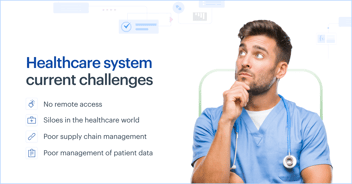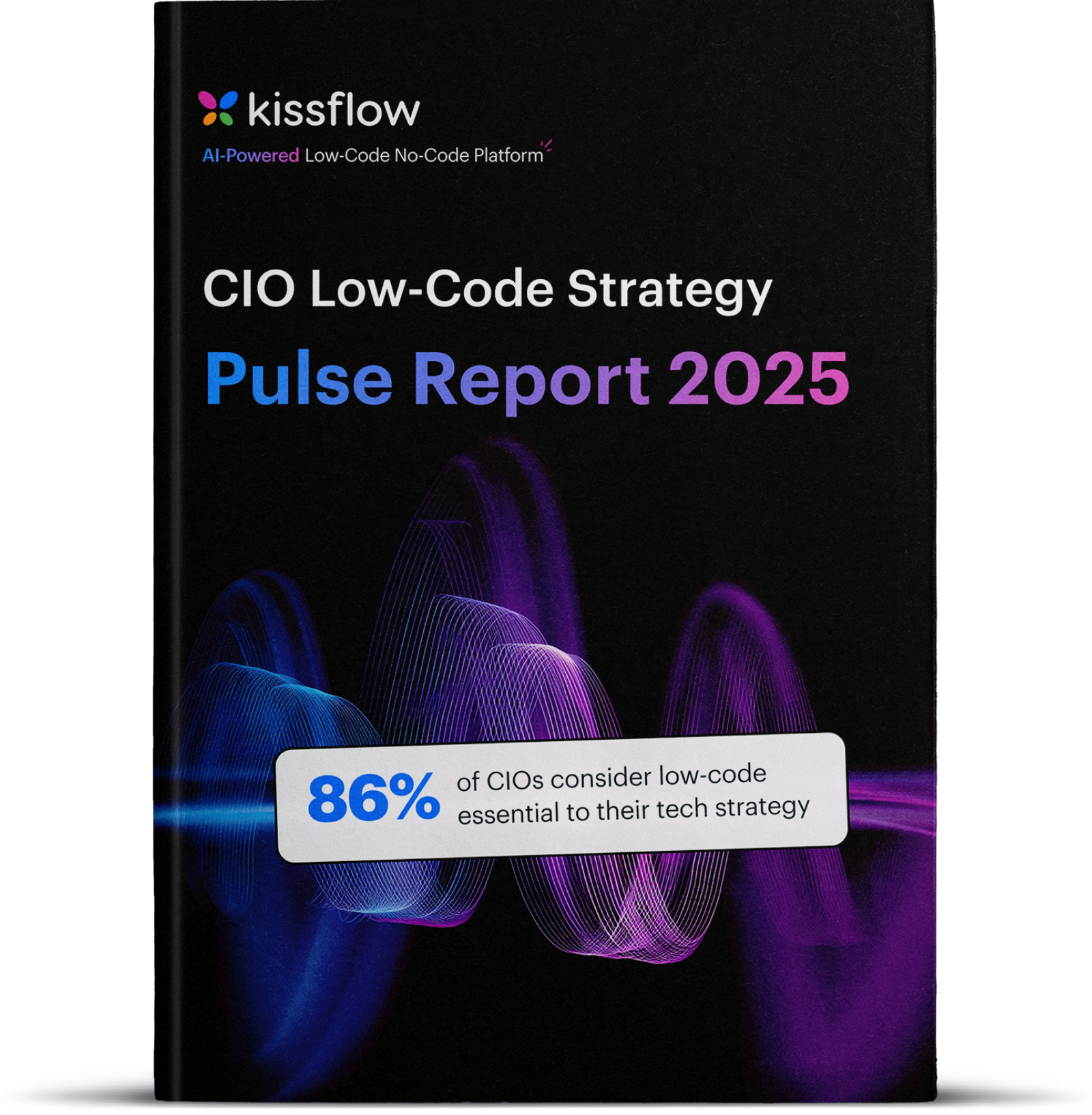According to a report, the global healthcare automation market size was $37.8 billion in 2021 and is expected to reach 91.6 billion by the end of 2030.
Like many other industries, automation is also re-imagining the healthcare industry processes by enabling efficiency in a way that is otherwise impossible with manual processes.
The benefits of automation in healthcare are as clear as day. Automation has helped free up the time of healthcare staff by decreasing the amount of human-facing work and automating repetitive tasks.
Let's take a look at the different ways automation can make healthcare more sustainable and efficient.
1. Automate appointment scheduling and reminders
Manually scheduling appointments can be challenging due to the possibility of scheduling conflicts and the numerous factors that need to be considered for matching the right patient with the right provider at the right location.
Automating appointment scheduling allows patients to schedule their appointments 24/7 from any device and anywhere quickly. While patients can check all the available appointment slots for the upcoming weeks, healthcare practices maintain full control and incorporate rules around scheduling. One of the biggest healthcare automation benefits is that the automated workflows can also send reminders to patients regarding their upcoming appointment to decrease no-shows.
2. Automate prescription refill requests
Up to 44% of time spent in the EHR (Electronic Health Records) is taken up by administrative and clerical activities like authorizing prescription refills leading to increased burnout and stress in medical staff. After all, refilling a prescription is a process that requires the complete attention of staff, who would ideally have to stop whatever they are doing to attend to the prescription refill request.
But when the prescription refill requests are automated, the patient can automatically request a refill online and then get notified when their approved refill is ready to be picked up.
3. Automate lab test results notification
In the healthcare industry, every second counts. Accurate and fast diagnosis can lead to quick treatments and prevent further progression of health problems. By automating the process of sending notifications for lab test results, it becomes possible to communicate test reports accurately in real-time to both caregivers and medical practitioners, which can drastically improve patient care.
4. Automate insurance claims
For every insurance company, claim processing is the cornerstone of their business and how they deliver value to their customers. But claim processing is also very complex, and even the smallest errors can lead to huge problems.
By automating the claim processing processes, the time taken to process claims can get significantly reduced, and it's possible to save costs by over 30 percent. It is also predicted that by 2030, over 60 percent of claims will get fully automated.
5. Automate patient check-in and discharge
Patient registration and discharge are complex processes that require a considerable amount of data about a patient's health history, contact information, previous treatments, current insurance coverage, lab tests, and other details. They also happen to be the most frustrating and time-consuming steps for both the patients and the healthcare staff.
Automating this process entirely or at least some parts of the process can significantly cut down the time it takes for patient check-in and discharges while also providing consistent and integrated patient experiences.
6. Automate medication dispensing
By automating manual tasks like staying on top of stock management or tracking down a specific drug, you can free up the time of the pharmacy staff and reduce errors while dispensing medicine.
You can manage the inventory of medicines more seamlessly and re-order different medicines from the respective vendors before they go out of stock at the pharmacy.
7. Automate shift management
Poor workforce planning in the healthcare industry, where the staff is consistently overworked, can lead to prolonged patient wait times, missed appointments, negative customer experiences, and stressed-out staff.
Optimizing and automating shift management can consider everyone's work hours and ensure doctors and nurses always know where they need to be (and when). It can also account for last-minute cancellations of shifts when assessing nurse, doctor, and admin staff schedules. You can also monitor overtime, staff leaves, and compliance with labor laws.
8. Automate environmental monitoring
Hospitals can have numerous temperature-sensitive areas containing items like blood, medicines, food, and other specimens. For instance, ICUs and NICUs need to be maintained at a certain temperature to ensure patient health and comfort. Similarly, vaccines require precise temperature ranges, or else they can lose their potency.
Manually setting temperatures and monitoring environments is time-consuming, very expensive, and prone to errors. Automating this process through remote IoT sensors and a centralized dashboard that monitors temperature in real-time can decrease the room for error and ensure all temperatures sensitive areas are constantly monitored.
9. Automate waste management
Hospital waste is complex and a big source of concern for infections, inefficiencies, and high operational costs. Moreover, hospitals now consider waste management as one of their biggest and most important sustainable practices.
Automating waste management can significantly improve infection control and cleanliness while improving overall patient safety and promoting optimum patient experience. Through a dedicated automation platform, you can define the roles of the waste management staff, set up their schedule for waste pickups, and alert admin in case of any delays or problems.
10. Automate data collection and analysis
One of the most complex and time-exhaustive processes for healthcare staff is to collect and manage vast amounts of data– whether it's setting up EHRs or creating a database for all the healthcare staff to build a roster.
By automating data collection and analysis, you can reduce the time it takes to find records. Moreover, healthcare analytics can offer insights to improve patient care, diagnosis, clinical data, and business management.
Automate and digitize healthcare operations with Kissflow
Kissflow is a simple low-code/no-code platform that can effectively automate and streamline manual processes in the healthcare industry. From patient registration to appointment scheduling, discharge management, shift management, lab and diagnostics, and staff onboarding, Kissflow can help automate all the major healthcare processes to save time and allow your staff to focus on their core responsibilities.








